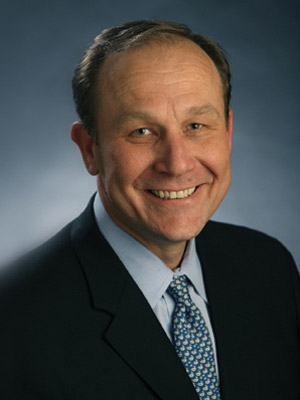
Jeffrey A. Joerres
Chairman and CEO, Manpower Inc.
Corporate Headquarters: Milwaukee, Wisconsin
Website: www.manpower.com
Primary Business: Full suite of innovative workforce solutions and services
Revenues: $19 billion
Employees: 30,000 worldwide
2011 CEO in Action
Why is diversity important within modern organizations? Is it because it’s the right thing to do? No doubt, unleashing the potential of people from all walks of life helps improve lives, but it goes much deeper and is more sustainable than that. Demonstrating a firm commitment to diversity is in companies’ best interests—and that of the clients they serve.
If you place a premium on diversity, you create better discussions, make more sustainable profit, and engage all segments of the potential workforce.The need to do this has never been greater. As we enter this new post-downturn age, access to key talent is becoming the competitive differentiator, and companies need to focus on the human side of their business. Working-age populations are shrinking, the nature of work is shifting and emerging markets are becoming key players on the world stage, exacerbating a situation where employers seeking a highly specific set of skills are already struggling to find the people they need.
With talent so hard to locate, savvy employers everywhere need to give themselves a leg up. That means tapping in to working populations that have traditionally been unrepresented in order to access the best talent. The nature of Manpower’s business delivering innovative workforce solutions gives us a privileged position to promote diversity. Within our organization and for our clients, we passionately believe that engaging all segments of the potential workforce is essential to maintaining our dominant role as a world of work expert and helping our clients win.
Women have long been an under-tapped talent pool, a situation that must change now that the talent mismatch is a reality. The benefits of women participating in the workforce are striking, but the traditional 40-hour work week is impractical for women with childcare responsibilities, and companies need to adopt flexible work practices if they are to get women into the workforce in greater numbers.
In some countries, women face cultural barriers to employment, as do other groups. In Israel the Ultra Orthodox Jewish community has traditionally existed outside of the workforce due to strict adherence to its religious values. Through our Manpower Bereshit subsidiary, we trained workers from this group and educated employers around their cultural sensitivities. The benefits of employing members of an untapped workforce were demonstrated to the client – and provided to them as the solution.
Organizations can continue to create and share knowledge and innovation only by remaining open to the ideas of all, and by reflecting the diversity of a more interconnected world.
Education: Bachelor’s degree, Marquette University College of Business Administration
First Job: Typewriter installer for IBM
What I’m Reading: The World is Blue, by Sylvia Earle
My Philosophy: CEOs are there to serve, not be served.
Best Advice: Get out of your office and meet people face to face.
Family: Wife, Sarah; children Emily, Tommy, Madeline and Michael
Interests: Motorcycles and wine
Favorite Charity: United Way






